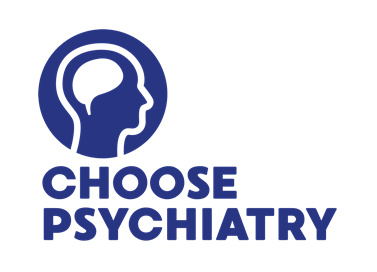My special interest in autism
24 October, 2023
This blog post by Dr Daniel Romeu is part of the 2023 Choose Psychiatry campaign.
My journey into psychiatry began when my younger brother received his autism diagnosis at just two years old. I knew then that I wanted to spend my life helping people and learning about the mind.
In recent years, autism has received growing recognition among healthcare professionals and the public. Thankfully, we have moved away from understanding autism exclusively as Leo Kanner’s classical description, and we now recognise and appreciate its diverse and sometimes subtle presentations.
Autism is every psychiatrist’s business. It increases the risk of many mental health problems, such as depression, anxiety, self-harm, psychosis and gender dysphoria. As psychiatrists, we should be able to meet patients’ communication needs and to make reasonable adjustments to the treatments we deliver. For these reasons, I think we should all prioritise improving our understanding of autism and developing a neurodivergent-friendly approach to our practice.
When I learned that Higher Training offered special interest time – two sessions per week for personalised learning and development – working in an autism diagnostic team was unquestionably the right choice for me.
For my special interest, I spend one day per week with the Leeds Autism Diagnostic Service, or LADS, a clinical service providing autism assessments for adults of all intellectual abilities. I arranged this by simply emailing the clinical lead, who responded promptly and welcomed my enthusiasm.
I am involved in consultations at all stages of the assessment pathway, from initial assessments and developmental histories to clinical decision-meetings and feedback appointments. There are ample additional learning opportunities; I can attend post-diagnostic follow-up appointments, spend time with third-sector organisations providing support for people with autism, and even shadow a consultancy service for professionals working with patients with autism and complex health needs.
As a Higher Trainee, I am also lucky enough to have access to a study budget, which I have used to gain formal training in the administration of the Autism Diagnostic Observation Schedule, or ADOS-2.
I already feel confident that these experiences will help me and the care I deliver to my future patients. I am gaining a better understanding of the breadth of autism presentations and a greater appreciation of its impact on people’s lives, while developing neurodivergent-friendly communication skills and clinical approaches.
Throughout my career, senior colleagues have consistently told me that Higher Training was the most enjoyable and valuable time of their careers, with special interest sessions being one of the key reasons. I can confidently say that they are an invaluable privilege, particularly after five very busy years of Foundation then Core Training.
Higher Training is already proving to be an excellent experience. I am confident that my learning, training and wellbeing are the utmost priority and I love the focus on developing both clinical and non-clinical skills. I have more autonomy, but support is always available when needed. My academic time, teaching and Special Interest sessions are genuinely protected, and no two days are the same. Most importantly, I am always learning from my patients and making a real difference to their lives.
Choose Psychiatry. And learn more about autism!
Dr Daniel Romeu, ST4 and Academic Clinical Fellow in General Adult Psychiatry
Make a difference – choose psychiatry
Considering a career in psychiatry? Hear from working psychiatrists why they chose psychiatry and how rewarding the job can be.
Or if you've taken a break from work or training, let us show you the wide range of support on offer as you return.


